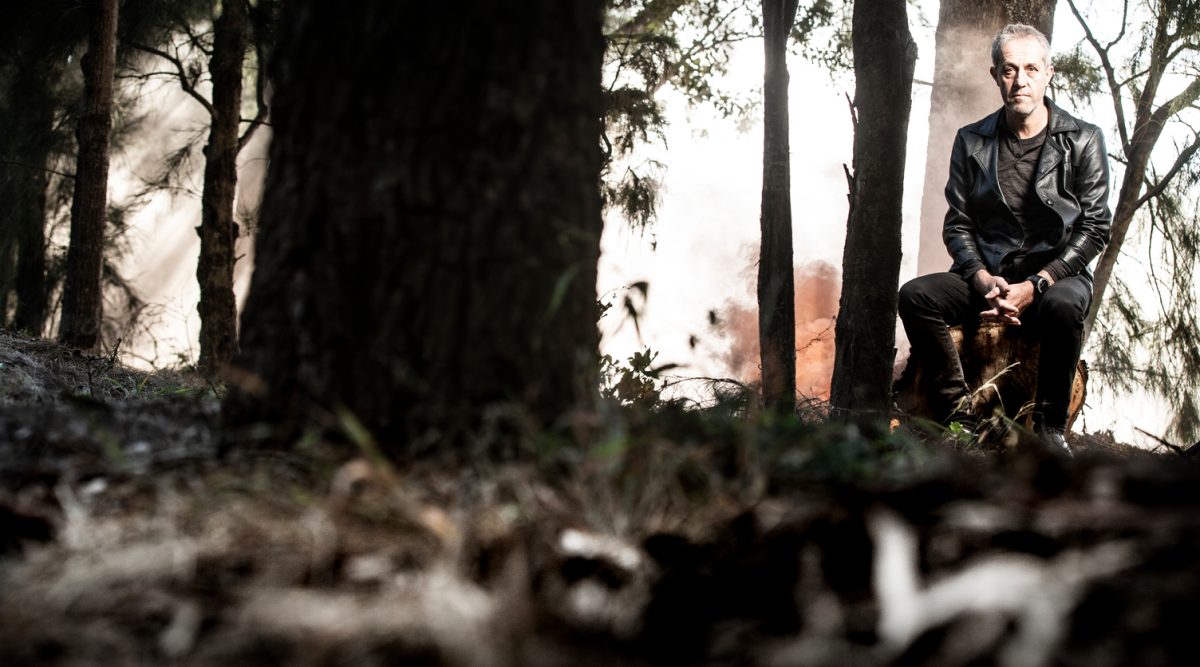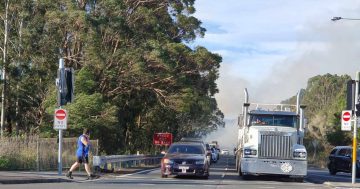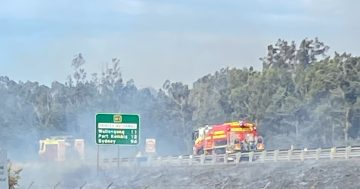
Hazard reduction burns are being undertaken across the region ahead of hot and dry conditions. Photo: NSW RFS Illawarra Sutherland Team.
A dire prediction of dry and hot weather has emergency services on edge as firefighters try to prepare for a dangerous bushfire season, but the community is being urged to play their part and get plans in place now to protect their own homes and families before they’re faced with a disaster.
With the Bureau of Meteorology predicting an El Nino in coming months, RFS Illawarra Sutherland District Manager Superintendent Martin Surrey said crews had been utilising the cooler weather to conduct measures such as hazard reduction burns and clearing trails to ensure that they are in the best position possible when the heat hits.
“We’ve got a lot of fuel which has accumulated over the rainy period and a lot of that fuel is ready to burn so we are mindful of that,” Supt. Surrey said. “We are taking steps at the moment whilst we have opportunity to carry out mitigation strategies.”
Illawarra’s northern suburbs and the escarpment continue to be areas of focus for the team with grasslands further south also a concern and a community protection plan being put in place for Mt Kembla residents.
“We’re also monitoring people who are doing pile burns and making sure that they’re doing it in the most appropriate weather,” Supt Surrey said. “There has been a number of pile burns in surrounding districts that have escaped due to a little bit of wind and the grass is very dry so we’re just making sure people are mindful of that.”
But there are only so many preventative measures that can be implemented and education within communities is a vital part of the process.
“You need to be prepared, you need to know exactly what it is that you’ll do, you need to plan for the worst-case scenario.
“It could be the difference between life and death. If you’re not prepared and you haven’t planned for an incident there’s no point preparing or planning for it as it’s oncoming because it’s never going to be right.”
Director of the University of Wollongong’s Centre for Environmental Risk Management of Bushfires, Associate Professor Owen Price said preparing your own property properly could make a massive difference as to whether it withstands a fire.
“The biggest risk is what you do in the immediate area around your house,” Associate Professor Price said. “Even if you’ve got forest quite close to you, if you’ve got good protection around your house and it’s built to the standard, your house should survive.”

Associate Professor Owen Price said bushfire seasons would continue to get worse over time. Photo: UOW.
Associate Professor Price said that although the chances are that this fire season will be worse than average, there had not been the same buildup of drought that was seen before the Black Summer bushfires.
“It’s dry but it’s not that dry,” he said.
“It also depends on what happens between now and then. El Nino doesn’t mean there will definitely not be rain, we’ve had rain this week so you never know what’s going to happen.”
He said that although the region was surrounded by greenery, not all of it would be high risk this year.
“The escarpment is mostly a wet forest, so under normal conditions, probably even this summer, it’s not likely to burn,” Associate Professor Price said. “But when you have drought for several years it can burn and when it burns it burns really, really hot and badly.
“This year, I don’t think it’s going to get so dry that a fire would really take off fiercely in the escarpment, but you just never know.”
But it could only be a matter of time until we see another emergency.
“There’s a lot of variation between years but the overall trend is up, so the chances are that something like 2019/20 is going to happen again in the near future, in a few years’ time, and in some time in the future we’ll get an even worse one.”
That trend is being witnessed right across the world with heatwaves and bushfires in Europe, North America and Asia.
“The general take-home message is that climate change is driving an increase in the amount of fire and the same thing is happening here.”
And even though firefighters are doing all they can do minimise the damage and destruction, Associate Professor Price said once a fire started it could be a losing battle.
“At the end of the day, bushfires can’t really be stopped,” he said. “If they occur there’s nothing we can do to prevent this risk, it’s just what we can do to manage it.”
The RFS are urging the community to plan and prepare by using resources on their website, contacting a local station or attending a Get Ready Day event in September.











